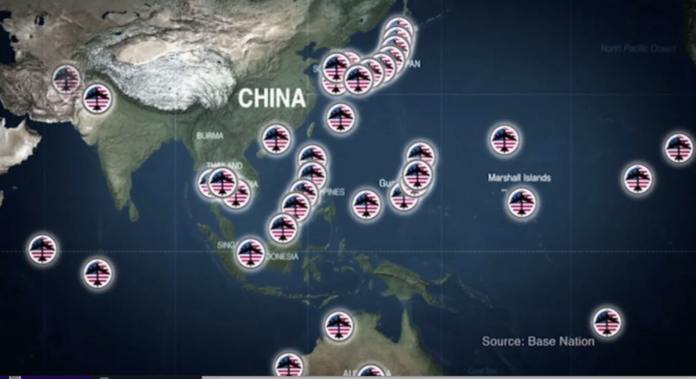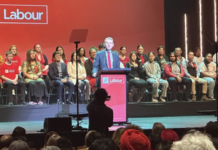Melanesian Spearhead Group meeting next week – West Papua on the agenda
Melanesia is still the place to watch in the Pacific; and next week is no exception. West Papuan independence is in the spotlight as the Melanesian Spearhead Group prepares to meet in Vanuatu. West Papua or Irian Jaya as the area is known in Indonesia, is a province of Indonesia that includes the western half of the island of Papua, the eastern half of the island being Papua New Guinea. Many people in West Papua are of Melanesia descent and therefore would rather be independent than part of Indonesia.
A little known but long-running and bloody war for independence is being fought in the mountains and jungles of West Papau. This war recently came to public attention because a New Zealand pilot was kidnapped by rebel forces.
Recently, there has also been a push for West Papuans to have an independent voice in the Melanesian Spearhead Group, a sub-group of the Pacific Islands Forum. The Melanesian Spearhead Group has operated for 35 years and aims to be a representative group for Melanesia within the wider Pacific Island Forum. It includes Fiji, Papua New Guinea, Solomon Islands and representation from the Kanak people of New Caledonia. The Kanaks providing a potential model for West Papuan representation in the group. And; next week’s meeting will be the first time the Melanesian Spearhead Group’s leaders have met in person since 2018.
Next week’s meeting is important because Melanesia is currently at the cutting edge of Sino-American competition in the Pacific. Recent Chinese security deals in the Solomon Islands and American defence agreements in neighbouring Papua New Guinea demonstrate the level of interest in the area. Further, there are a range of difficult issues in Melanesia created by this competition including:
- Vanuatu’s government is subject to internal political criticism for signing a security agreement with Australia. China leaning politicians criticising the deal.
- Solomon Islands planned 2023 election has been postponed once and is now set to take place in December surrounded by debate about security and the nation’s relationship with China. Solomon Islands has a history of political violence and needing external security support to quell rioting creating a point of high tension during this year’s election.
- Papua New Guinea’s defence agreement with the United States is not without internal political criticism.
Essentially, some nations in this region are already politically unstable and are now being subjected to diplomatic pressure from China, the United States, its allies and more recently France to ‘take sides.’ It is a tough political situation for small nations that are probably more worried about climate change and economic prosperity.
West Papuan independence will be part of next week’s meeting and a first step into that discussion could be West Papuan representation on the Melanesian Spearhead Group. Fiji supports the proposition, Prime Minister Sitiveni Rabuka meeting with West Papuan independence leader Benny Wenda in February this year. Papua New Guinea’s leader James Marape, closer to Indonesia is not so keen feeling that the Indonesia’s territorial sovereignty should be respected.
This debate is worth following because Melanesia is a high-risk area in the Pacific. It is largely unknown internationally so there is limited media attention on an area that is currently a key focus of Sino-American competition. An area that is rapidly defining its role in this competition and in which there are a range of difficult political issues including West Papuan independence. If West Papuan’s do not have options to mediate their concerns peacefully, for instance working to develop greater autonomy within Indonesia they will be more likely to keep fighting, and any war is an opportunity for larger states to find proxies and create instability. A voice in the Melanesian Spearhead Group may provide an opportunity for open discussion rather than violence.
Indo-Pacific Chiefs of Defence Force conference in Fiji
Last week, from 15-18 August the Indo-Pacific region’s most senior military officers met in Fiji, jointly hosted by Fijian Chief of Defence Force Major General Jone Kalouniwai and United States Indo-Pacific Region Commander Admiral John Aquilino.
The conference included representatives from 27 nations and the them was “Preserving the Rules-Based Order to Enable Sovereignty in an Era of Strategic Competition.” Key break out discussions related to cyber-security, managing climate change and responding to natural disasters.
The conference included a Chinese delegation, a positive step to help defuse Sino-American tensions. Like any industry, the world’s militaries network constantly. Many of the Chiefs of Defence Force in attendance will have met each other on professional courses, exercises or at similar conferences and the relationships formed are a vital part of the geo-politics of any region. The ability for military leaders to talk and understand each other’s political drivers is vital for maintaining peace and stability. Too often military leaders are characterised in negative ways, seen as aggressive or as relishing the prospect of conflict. This is not generally true, most military leaders understand the cost of war and therefore desire peace, conferences like this provide an opportunity for these professionals to mix, talk and build relationships that in time of conflict provide communications channels through which tensions can be defused. So, it is good that China was invited and chose to participate.
Solomon Islands Prime Minister declines meeting with United States Congressional delegation
In an interesting but not unexpected turn of events, Solomon Islands Prime Minister Manasseh Sogavare declined to meet last week with members of a United States Congressional delegation visiting the country. The delegation includes representatives from Congress’s select committee on the Chinese Communist Party.
A Congressional delegation is a senior group of United States officials and its visit demonstrates the weight that the United States is putting behind mending relationships in Melanesia. Congressman, Neal Dunn the delegation’s leader reflected the members disappointment stating “It’s a missed opportunity.”
The Solomon Islands government has not given a reason for not meeting and is facing criticism from opposition leaders for the decision. Leader of the opposition, Matthew Wale stating “The prime minister and his office treats the US with contempt. So much for ‘friends to all’. It seems more like ‘friends to some.”
The delegation met with a wide range of people from the Solomon Islands including business groups and opposition political groups. Congressman Dunn’s father served in Solomon Island during World War Two so he visited memorial sites providing an opportunity to reflect on the historic relationship between the two nations.
This diplomatic situation is interesting because it demonstrates two important points, the first is Prime Minister Manasseh Sogavare’s attitude to the United States, an attitude that appears to be hardening over time. An implication of which could be more Chinese aid being allowed into Solomon Islands. Second, that the United States is very interested in Solomon Islands and meeting with opposition political groups is not only about fact finding; it is also about makings sure that the opposition (and current government) know that if the political landscape changes the United States and its allies will be there to support a pro-American regime.
The key takeaway is that both the United States and China are working hard diplomatically to win the Solomon Islands, a competition that will increase existing political tensions in the nation.
And; further north South Korea and Japan hold historic discussions
At Camp David last week United States President Joe Biden, Japan’s Prime Minister Fumio Kishida and South Korea’s President Yoon Suk-yeol met and held historic discussions to improve the nations relationship. Japan and South Korea’s relationship bears the scars of history, the Japanese occupying and brutally oppressing Koreans during the 20th Century. A period in history that Japan has steadfastly refused to apologise for, or even publicly acknowledge. And; if you study history closely you will know that there are centuries of Korean and Japanese enmity. So, this means that the two nations are unwillingly united by the threat of North Korea, China and Russia.
The discussion is an indicator of the significant concerns that both nations have for their security. The United States is an ally of both, and frankly needs their military power to contain Chinese military ambitions in the North Pacific. Therefore, bringing these leaders together is a political win for President Biden because he is starting to set conditions for the countries to work together more productively. China’s vigorous diplomatic protests demonstrate the potential of South Korea, the United States and Japan working together more effectively.
The question is how long will this situation last, can Japan and South Korea develop a lasting and effective relationship; or is any relationship destined to fail until Japan acknowledges the suffering it inflicted on Korea?
Ben Morgan is a bored Gen Xer and TDBs military blogger





Economic stagnation and resulting social unrest at home has often been a driver of military and economic expansion overseas. It has two purposes;
#1 Successful overseas expansion opens up new territories, resources and markets and investment opportunities.
#2 Soak up all restive unemployed into the military, to protect and hold these new territories and keep rivals out, and independence movements down.
https://www.washingtonpost.com/opinions/2023/08/20/china-economic-data-disappear/?
Some effects of global recession cannot be made to disappear, the flow on economic effects are being felt here.
https://www.rnz.co.nz/news/country/493337/nz-export-prices-hit-as-china-europe-economic-growth-slows
Imperialism has been called the highest stage of capitalism. Simply put, imperialism is capitalist exploitation practiced between countries.
Some of the super profits made overseas can be used to buy off the restive population at home.